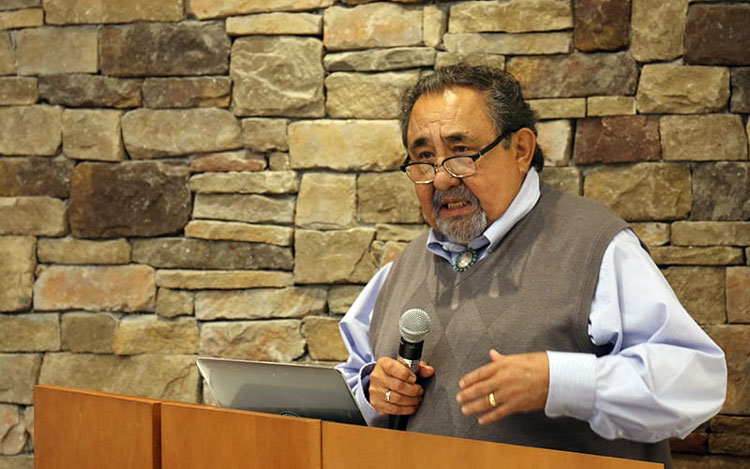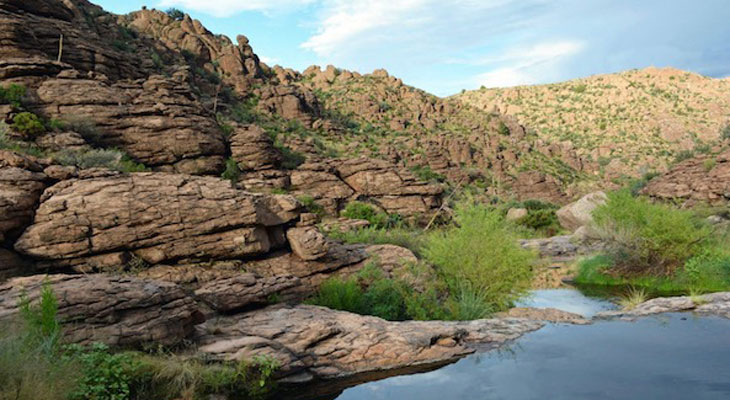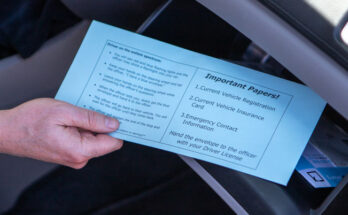Contributed Photo/Courtesy Sacred Land Film Project: Oak Flat, Chich’il Bildagoteel, is at the center of a dispute between the San Carlos Apache Tribe and Resolution Copper.
Chairman Terry Rambler warns Congress Resolution Copper intends to export copper to China
Contributed Article
SAN CARLOS APACHE RESERVATION — The San Carlos Apache Tribe strongly supports passage of the Save Oak Flat from Foreign Mining Act introduced today by Rep. Raul Grijalva (D-AZ) that would stop plans to construct the Resolution Copper Mine 70 miles east of Phoenix on public land owned by the American people.
“Our Tribe has opposed the Resolution Mine for nearly 20 years because it will destroy one of our most sacred sites, Chi’chil Bildagoteel, also known as Oak Flat,” says San Carlos Apache Tribe Chairman Terry Rambler. “The Save Oak Flat Act would repeal a law that mandates the transfer of federal land on the Tonto National Forest to foreign mining entities that intend to extract copper that will be exported overseas.”
Resolution Copper Limited Liability Company is owned by the two largest foreign mining companies in the world: Anglo-Australian miner Rio Tinto Group and Australia-based BHP Group. Rio Tinto is Resolution Copper’s majority partner. Rio Tinto’s largest single customer is China accounting for 57% of the company’s 2022 sales. Rio Tinto’s single largest shareholder is the Chinese government-owned Aluminum Corporation of China with a 14.6% stake in the company.
“Foreign-controlled Resolution Copper is misleading the American people and Congress by falsely claiming the raw copper it intends to extract will be used in the United States for the domestic renewable energy economy,” Chairman Rambler says. “The truth is Resolution intends to export the raw copper overseas, most likely to China.”

The United States already exports more than 25% of the unprocessed copper extracted from U.S. mines because of a lack of domestic smelter capacity, according to the U.S. Geological Survey’s 2022 annual copper report. Copper is plentiful and is not considered a critical mineral, according to USGS’s 2022 critical minerals report. The Resolution mine is projected to be one of the largest copper mines in the world and the company has stated it does not intend to construct a smelter which is the first step in converting raw copper into usable metal.
“Resolution’s raw copper is expected to be exported to Mexico, where it is then likely to be shipped to China,” Chairman Rambler stated in written testimony submitted last week to the House Natural Resources Committee. “China is by far the largest importer of unprocessed copper in the world.
“Resolution Copper has never committed to keeping the copper it seeks to extract beneath Chí’chil Biłdagoteel/Oak Flat in the U.S. for refining and sale. The company refused to state how much copper would be processed in the U.S. at a congressional hearing and has opposed congressional efforts that would have required Resolution’s copper to be processed in the United States,” Chairman Rambler stated.
A 2014 law mandates that the Chi’chil Bildagoteel/Oak Flat be given to Resolution Copper within 60 days of publication of an Environmental Impact Statement under the National Environmental Policy Act. The law was passed after it was rejected by Congress through regular order, which allows for a transparent and public process, but was instead attached at the last minute behind closed doors as a non-germane rider to a must-pass defense spending bill with no opportunity for amendment.
The U.S. Forest Service published a Final Environmental Impact Statement with serious deficiencies in January 2021 in the final days of the Trump Administration. The Biden Administration subsequently withdrew the FEIS on March 1, 2021, because of a lack of required consultation with Indian tribes and the need to review whether the FEIS complied with federal laws, stopping the 60-day deadline to give away Chi’chil Bildagoteel/Oak Flat. The San Carlos Apache Tribe has filed a federal lawsuit on the basis that the FEIS violates federal laws. Two other federal lawsuits are also pending.
Not only would the Resolution Mine destroy one of the most sacred sites of Apaches, but it also would consume massive amounts of groundwater and surface water. The mine conservatively estimates it will use 775,000 acre-feet or 250 billion gallons of water, which is enough water for 140,000 homes every year for 40 years.
Some of this water will come from seriously constrained Colorado River allocations while Arizona is in the grips of a megadrought. Approximately 70 percent of the water will be pumped from new extraction wells in the East Salt River Valley resulting in the lowering of groundwater by nearly 200 feet in some areas.
The mine would industrialize a vast area of the Tonto National Forest and result in one of the largest mine waste dumps in the world that threatens the Gila River watershed and downstream communities.
“Chi’chil Bildagoteel has a deep, religious value to members of the Tribe akin to the Temple Mount or the Wailing Wall,” Chairman Rambler says. “It is impossible to mitigate the destruction of this site. The only option is to preserve it in its natural state.”








